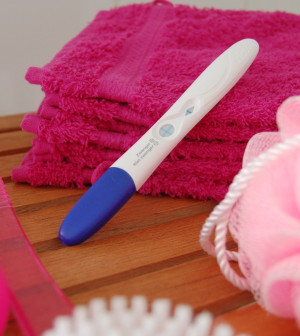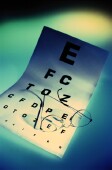- Could Your Grocery Store Meat Be Causing Recurring UTIs?
- Are You Making This Expensive Thermostat Error This Winter?
- Recognizing the Signs of Hypothyroidism
- 10 Strategies to Overcome Insomnia
- Could Artificial Sweeteners Be Aging the Brain Faster?
- Techniques for Soothing Your Nervous System
- Does the Water in Your House Smell Funny? Here’s Why
- Can a Daily Dose of Apple Cider Vinegar Actually Aid Weight Loss?
- 6 Health Beverages That Can Actually Spike Your Blood Sugar
- Treatment Options for Social Anxiety Disorder
Preschoolers Need Eye Screening, Experts Say


All children should have their eyesight checked between the ages of 3 and 6, preferably every year, eye experts say.
The new vision-screening guidelines for preschool-aged children are from an expert panel of the U.S. National Center for Children’s Vision Health.
The panel said that children in this age group require screening for eye problems, particularly vision issues that require correction with glasses, such as amblyopia (“lazy eye”) and strabismus (a disorder of eye alignment).
Early detection and treatment of vision problems is important in terms of a child’s development and readiness to school, according to the authors of the recommendations in the January issue of the journal Optometry and Vision Science.
The two “best practice” screening tests identified in the guidelines are visual acuity testing with eye charts and instrument-based testing using equipment called an autorefractor.
The panel also outlined how the screening tests should be performed and how screeners should be trained and certified.
“Unfortunately, many children receive neither appropriate screening to help identify those who need immediate eye attention, nor a comprehensive examination by an eye care professional, prior to beginning school,” Anthony Adams, journal editor-in-chief, said in a journal news release.
“These National Expert Panel reports are an important starting point for identifying vision health screening procedures and tests and definitions of expected performance measures to be tracked across the country,” Adams said. The goal, he said, is to ensure that children with problems identified on screening tests receive appropriate, comprehensive eye examinations and follow-up care.
More information
The American Academy of Pediatrics outlines the warning signs of vision problems in children.
Source: HealthDay
Copyright © 2026 HealthDay. All rights reserved.










